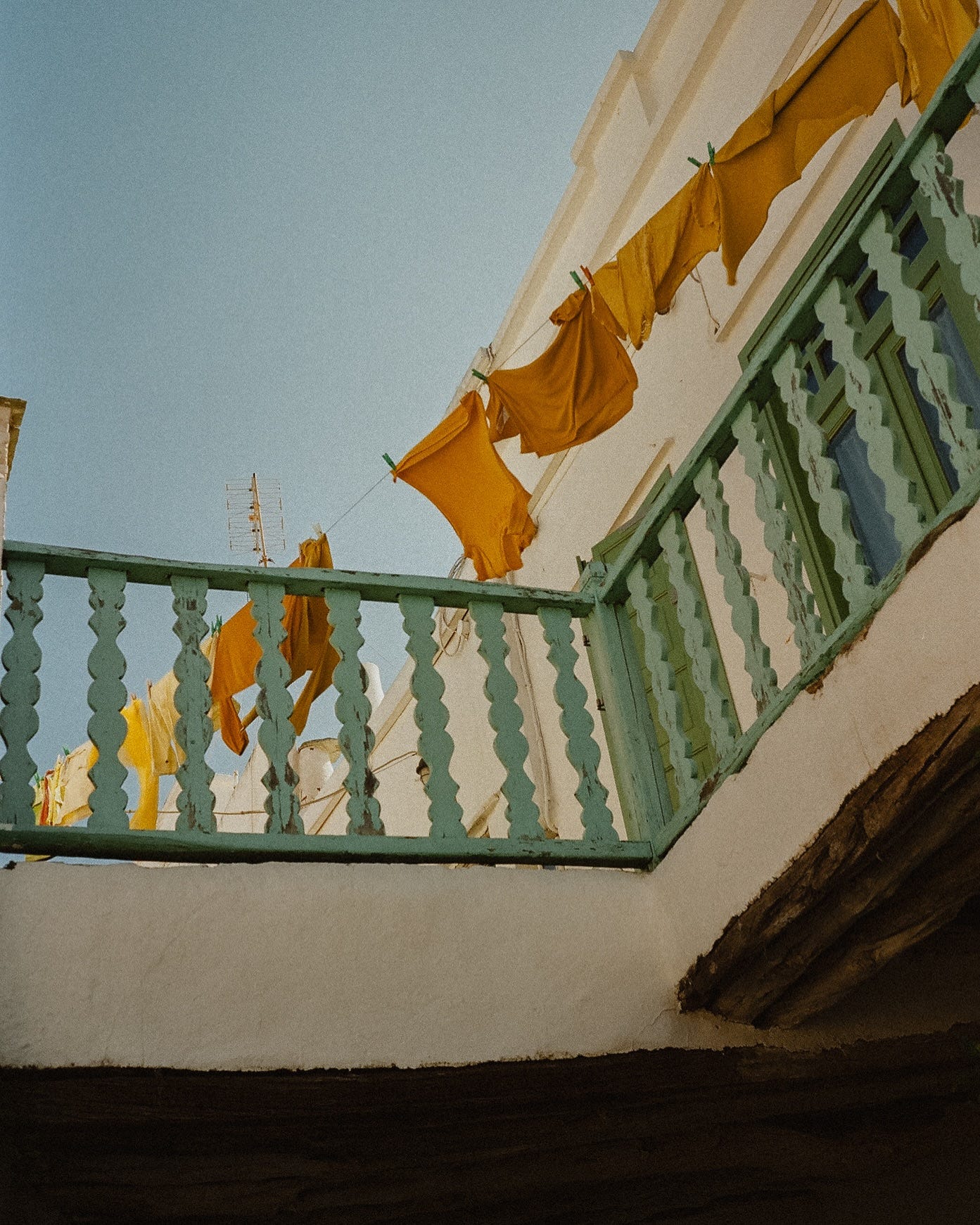3000 Years
Paula and Arne: Compost.Party
Dear reader,
»Be careful not to hit your head. The people who built the house were hobbits.«
We are in Kastro, a town built on a hill on Sifnos, one of the Cycladic islands in the Aegean Sea. Here, it is not only the doorways that are small. The entire town is tiny. Only eleven families live here during the winter. Even now, at the peak of activity, the town is so small that we need to order bread at the bakery a day in advance.
We walk around the perimeter of the town in a handful of minutes, pick ripe figs for our morning yoghurt, and stack stones on the beach at the foot of the hill. In the evenings, we stay up late to watch the stars. Uno marvels. He recognizes the Big Dipper and wants to see a shooting star. We talk about light pollution, star navigation, and hum Kelly Watch the Stars by AIR.
Humans have lived in Kastro for 3,000 years. The town is built with hands and time. The space between the houses forms the pathways, and you are rarely entirely sure if you are walking on a rock or someone’s roof. It is an interwoven web where Uno runs freely without the fear of cars.
I doubt the town was built to last 3,000 years. Nevertheless, I’m certain that the atmosphere of Kastro is only possible because hundreds of generations have cared for their shared space.
With care,
Kristoffer
⋆˖⁺‧₊☽◯☾₊‧⁺˖⋆
Paula and Arne: Compost.Party
Paula, a designer, and Arne, a software developer, set up compost.party together and are taking care of keeping it online.
What is Compost.party?
It used to be one of those phones that you keep in your pocket and scroll Twitter on (back then). Then it broke and that was over. Thanks to computers being universal machines and that being kind of like magic it oddly now is a server offering free webspace to anyone who finds some use for it.
Why did you start it?
There's this idea that somehow, after decades of Moore's law, in order to do something useful with technology we have to keep digging stuff out of the ground and pile heaps of waste on top of it. I thought it could be fun to try something else instead.
Who or what inspired you?
The permacomputing community is deeply inspiring, and the feminist server manifesto was both eye opening and encouraging. And maybe just a warm thank you to everybody who uses computers for silly experiments, poetic expression or to share pictures of their garden.
Visit Compost.party (or try again later if the battery is too low to serve you).
𓀂𓀬𓁅𓁅𓃂𓄆𓃻
Field notes
1.
Tiny Awards. It’s the third year of us running Tiny Awards, a celebration of the personal, non-commercial web. I’d say it is the best short list yet. Something in life only gets better; the web is one of them. You can check the nominated sites and cast your vote until September 1st. I’d also be grateful if you’d share the site on your blogs, newsletters, and podcasts. The grass is greener where you water it, so why don’t we let the personal and non-commercial web be what we give our attention and care?
2.
Artist Profile: Daniel Murray. Daniel is a philosopher and artist who uses the web as a medium to open new ways of living, being, and relating. I was lucky to write this artist profile for Rhizome.
3.
Practicing The Web. I spoke with Lullaby Machine about why I do what I do with the web. The interview features the first website Uno made, my son, who recently turned five… Oh, how time flies.
4.
Calls for Participation: Your Wayback Story (Due ?), Good Internet (Due ?), Clientside (Due?), Voiceworks Online (Due 24/8), Pioneer Works Residency (Due 31/8), The Chatroom & The Doll House (Due 31/8), Public Access Memories (Due 1/9), and The Wrong Biennale (Due 15/9).
5.
Poetic Web Calendar: Wordhack (NYC, 21/8), Chinatown JS (NYC, 26/8), POST Design Festival (Copenhagen, 12/9), Extending Poetry through Computation (URL, 10/10) and New Ways of Seeing (Paris, 24-25/10).
𓇼 ⋆.˚ 𓆉 𓆝 𓆡⋆.˚ 𓇼
Wayside flowers
Last email was sent to 4793 inboxes. Twelve people support me with a paid subscription. You can send questions, comments, products, sites, links, and more to kristoffer@naiveweekly.com. I read everything you send me :)




